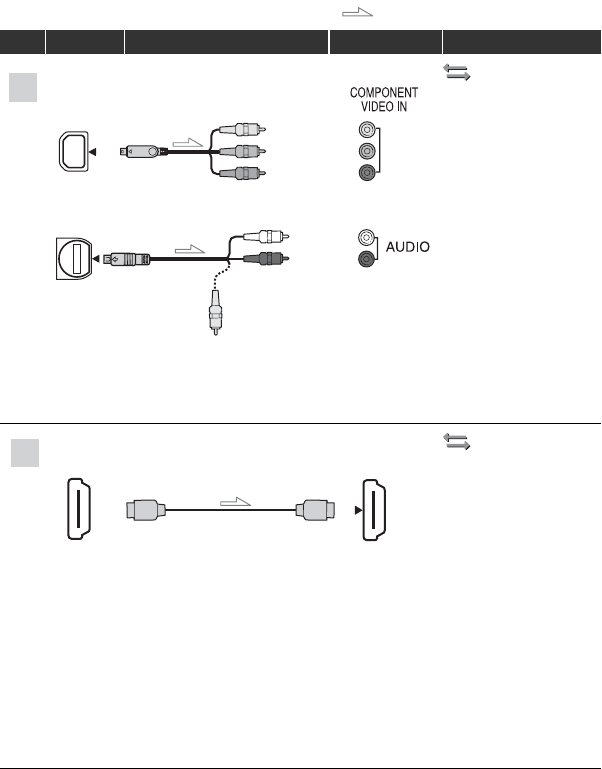
58
: Signal flow, ( ): Reference pages
Type Camcorder Cable TV Menu Setting
(IN/OUT REC)
[VCR HDV/DV] t
[AUTO] (82)
[VIDEO OUT] t
[COMPONENT] t
[1080i/480i] (84)
b Notes
• When you only connect a component video cable, audio signals are not outputted. An A/V connecting
cable is also needed to output audio signals. Connect the white and red plugs of the A/V connecting cable
to the audio input jack of your TV.
(IN/OUT REC)
[VCR HDV/DV] t
[AUTO] (82)
b Notes
• Use an HDMI cable with the HDMI logo.
• Pictures in the DVCAM (DV) format are not output from the HDMI OUT jack, if copyright protection
signals are recorded in the pictures.
• DVCAM (DV) format pictures input to the camcorder via i.LINK cable (p. 97) cannot be output.
• Your TVs may not function correctly (for example, no sound or image). Do not connect the HDMI OUT
jack of your camcorder and HDMI OUT jack of the external device with the HDMI cable. This may cause
a malfunction.
z Tips
• HDMI (High-Definition Multimedia Interface) is an interface to send both video and audio signals.
Connecting HDMI OUT jack to an external device supplies high quality images and digital audio to you.
3
4
A
Component video cable
(supplied)
A/V connecting cable
(supplied)
(Green) Y
(Blue) P
B
/C
B
(Red) P
R
/C
R
(Red)
(White)
(Yellow)
HDMI
IN
B
1
HDMI cable (optional)
Playing the picture on a TV (Continued)


















